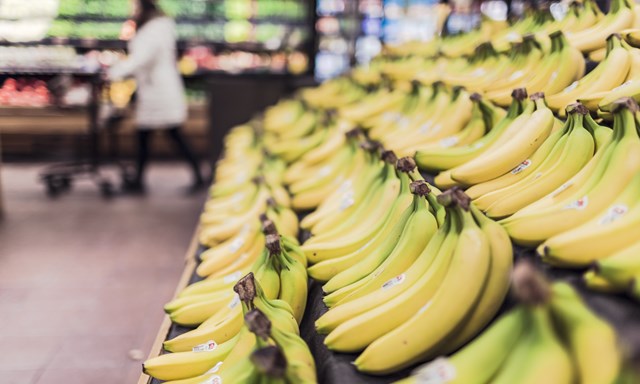
The problem of food waste in England is piling up. If the case hadn’t already been made strongly enough, Parliament’s Environment, Food and Rural Affairs Committee has labelled the economic, environmental and social effects as ‘grotesque’. Its recently published report on Food Waste in England was brought forward as the election was called, and they ask their successor committee to return to the issue, but it still makes for a clarion call to action to tackle the problem of food waste.
For all of us seeking to reduce food waste and to support redistribution there are important points to understand and respond to, which I’ve set out here. And there are areas where the report could go further to take on the problem, in my view, to accelerate the pace of change.
The report shows that there are real challenges in how the waste system is currently set up. The accepted waste hierarchy puts reduction first, then redistribution, and then way to dispose of unused food. But in practice the incentives either aren’t known or don’t exist to the level needed to enforce this structure in practice. Along with publicising the current incentives, there is an interesting recommendation for a fund to be set up. What this adds up to is the need for a business case to be built. It simply has to make more sense to reduce first, then redistribute food, not only because it is irrefutably the right thing to do, but because it makes for good business.
Then there is the issue of more and better data and transparency. One of things we’ve always stood for at Neighbourly is the transparency of donations. We’re working with our clients on more and better data for redistribution. The sheer weight of data and the reality that it wasn’t necessarily set up to report what we need means we have a mountain to climb. It’s an area that would benefit from real investment and cross industry collaboration.
It’s also very positive to see that WRAP and the work of Courtauld 2025 gets support. The Food Surplus Redistribution Working Group of Courtauld 2025 is a positive, collaborative effort. But Courtauld needs to be allowed to drive a strong vision and go a lot faster. The support that the Committee asks for WRAP can give it the resources it needs to accelerate its work. And extending the membership to include more manufacturers, as well as strengthening the commitment itself, can only be a good thing.
There are some critical sections of the report for food charities too, which deserved to make the recommendations more clearly. Our research with the Food Foundation, which formed part of our co-hosted seminar with the Food Standards Agency showed a snapshot of the critical capacity gaps charities face. Our FundAFridge campaign, kindly supported by Lidl, helped around 50 charities get a new fridge or freezer, helping them keep food safe and fresher for longer.
Charities can also get funds and volunteers for their work, as well as food, through Neighbourly. This kind of support is critical, and there are many ways to support, for example the Committee talks about how haulage companies can help with the transport challenges. What we need to see is a Government supported campaign to get more support and resources to food charities for the incredible work they do, and companies who can help in so many ways from transport providers, to volunteers with logistics, data or marketing skills, to community fundraisers, corralling to creatively help address these gaps.
It’s time for us all to focus our energy behind this issue. The case has been made, the need is clear, so let’s unlock some of this latent potential and take on the problem together.
Find out about distributing your surplus through Neighbourly.
Want to join our scheme as a food recipient? Email food@neighbourly.com